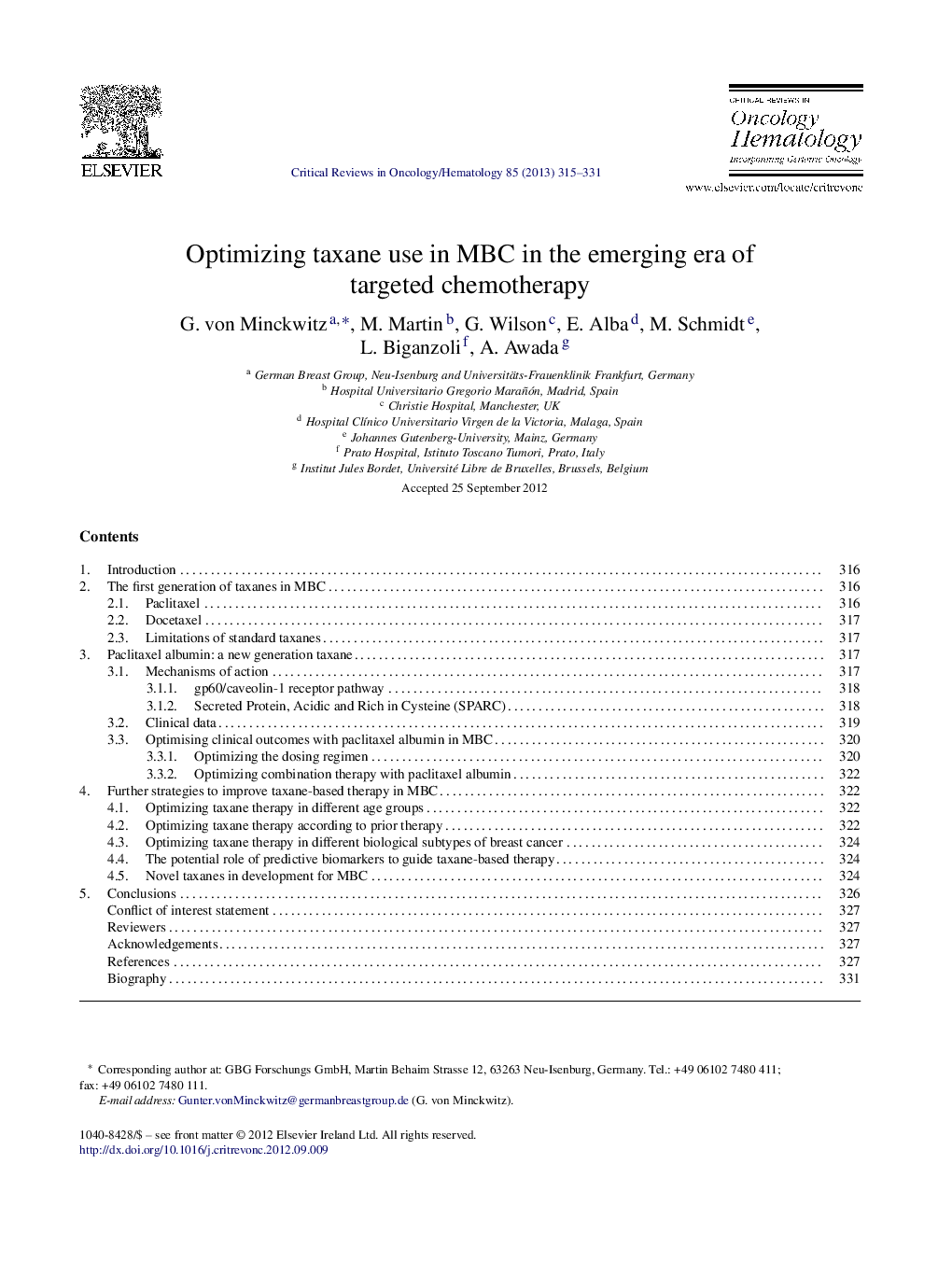| Article ID | Journal | Published Year | Pages | File Type |
|---|---|---|---|---|
| 3328870 | Critical Reviews in Oncology/Hematology | 2013 | 17 Pages |
The first-generation taxanes, conventional paclitaxel and docetaxel, are established treatment options for adjuvant and metastatic breast cancer (MBC). However, these agents have limitations, including primary/secondary resistance and harsh toxicities. The introduction of paclitaxel albumin represents a significant advance in taxane therapy as the first of a new generation of taxanes. This agent utilizes albumin pathways to achieve enhanced and targeted drug delivery to the tumour. The lack of solvent also means that it is well tolerated, despite the lack of premedications. Paclitaxel albumin is licensed in the United States and Europe as ≥2nd-line therapy in MBC (260 mg/m2 once every three weeks), but emerging evidence suggests it has activity in various settings as weekly therapy and in combination with other agents. Additional strategies to optimize taxane-based therapy are also being evaluated, including the possibility of tailoring treatment according to patient/disease characteristics, identifying predictive biomarkers and evaluating other novel taxanes.
